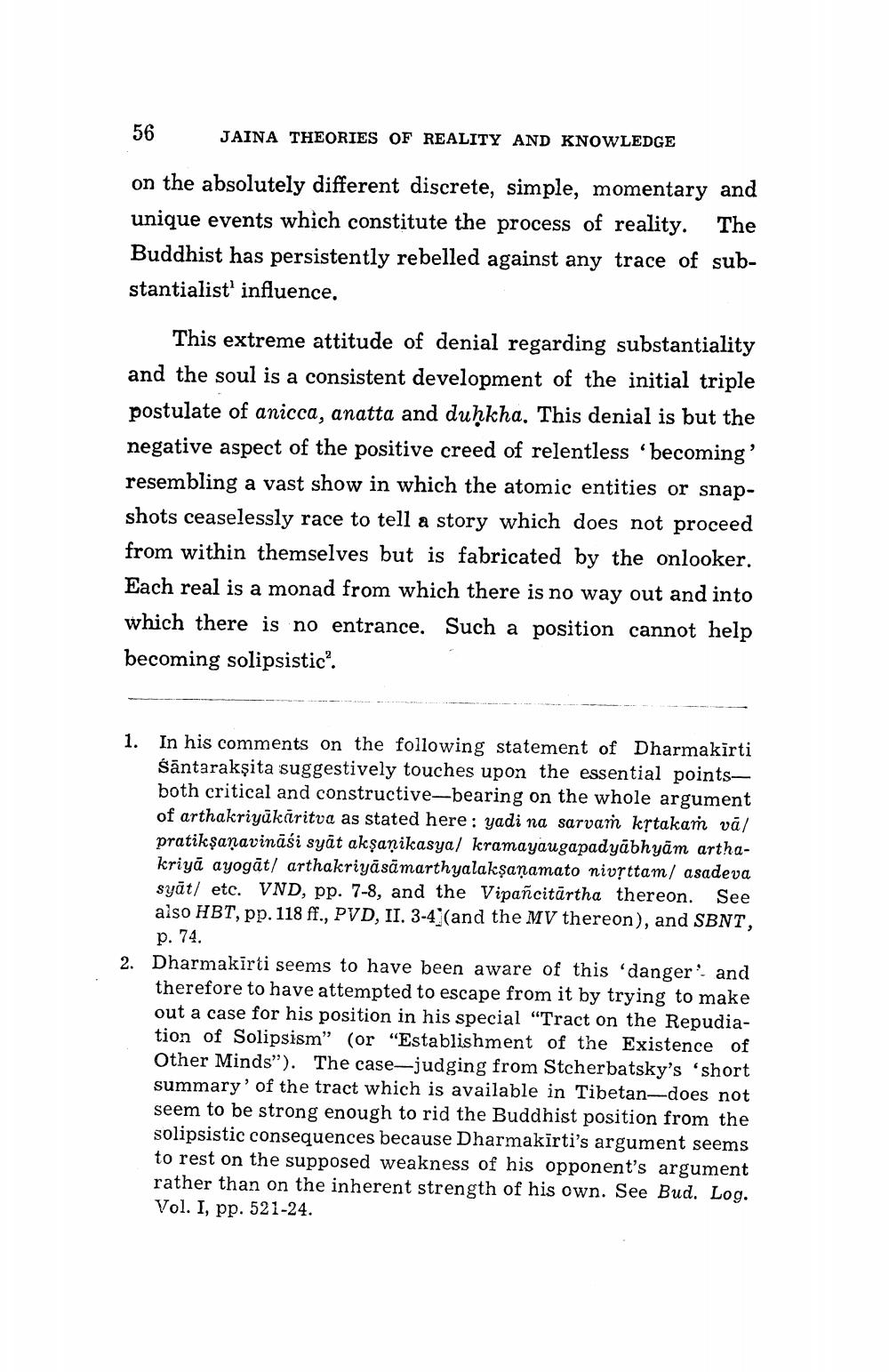________________
56
JAINA THEORIES OF REALITY AND KNOWLEDGE
on the absolutely different discrete, simple, momentary and unique events which constitute the process of reality. The Buddhist has persistently rebelled against any trace of substantialist' influence.
This extreme attitude of denial regarding substantiality and the soul is a consistent development of the initial triple postulate of anicca, anatta and duḥkha. This denial is but the negative aspect of the positive creed of relentless "becoming' resembling a vast show in which the atomic entities or snapshots ceaselessly race to tell a story which does not proceed from within themselves but is fabricated by the onlooker. Each real is a monad from which there is no way out and into which there is no entrance. Such a position cannot help becoming solipsistic'.
1. In his comments on the following statement of Dharmakirti
śāntarakṣita suggestively touches upon the essential pointsboth critical and constructive-bearing on the whole argument of arthakriyūkäritva as stated here : yadi na sarvam kştakam vā/ pratikşaņavinasi syāt akşaņikasya/ kramayaugapadyabhyām arthakriyā ayogāt/ arthakriyasamarthyalakṣaṇamato nivșttam/ asadeva syāt/ etc. VND, pp. 7-8, and the Vipancitārtha thereon. See also HBT, pp. 118 ff., PVD, II. 3-4 (and the MV thereon), and SBNT,
p. 74. 2. Dharmakirti seems to have been aware of this 'danger and
therefore to have attempted to escape from it by trying to make out a case for his position in his special "Tract on the Repudiation of Solipsism" (or "Establishment of the Existence of Other Minds"). The case-judging from Stcherbatsky's 'short summary of the tract which is available in Tibetan-does not seem to be strong enough to rid the Buddhist position from the solipsistic consequences because Dharmakirti's argument seems to rest on the supposed weakness of his opponent's argument rather than on the inherent strength of his own. See Bud. Log. Vol. I, pp. 521-24.




